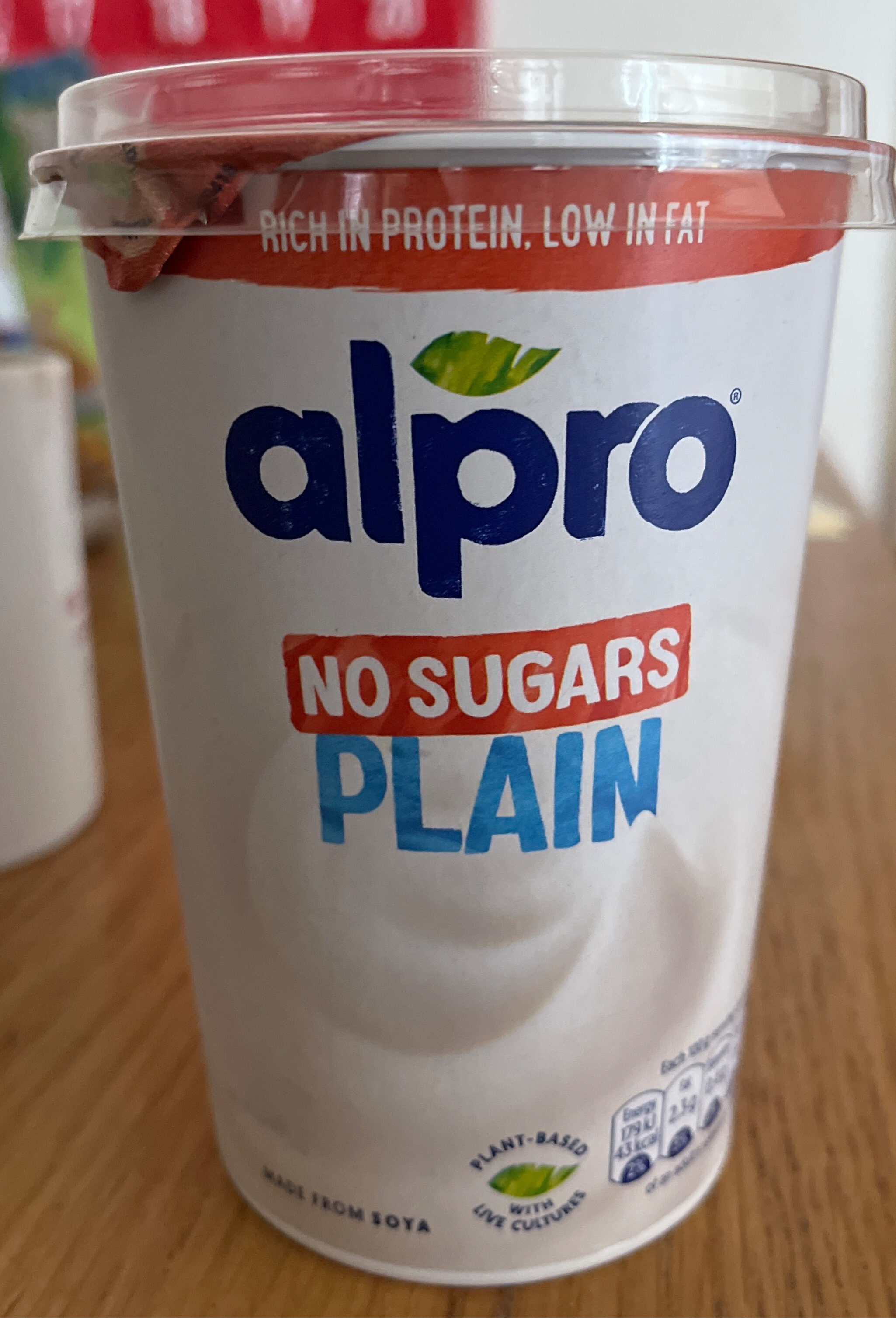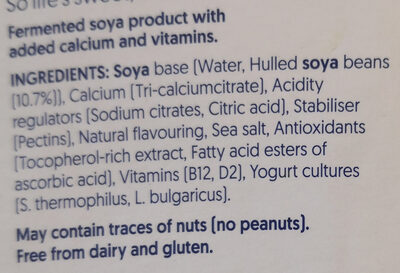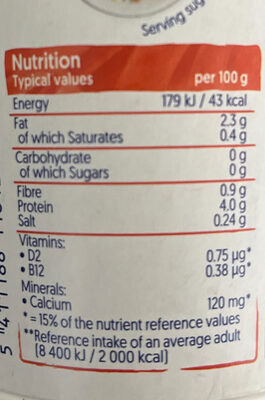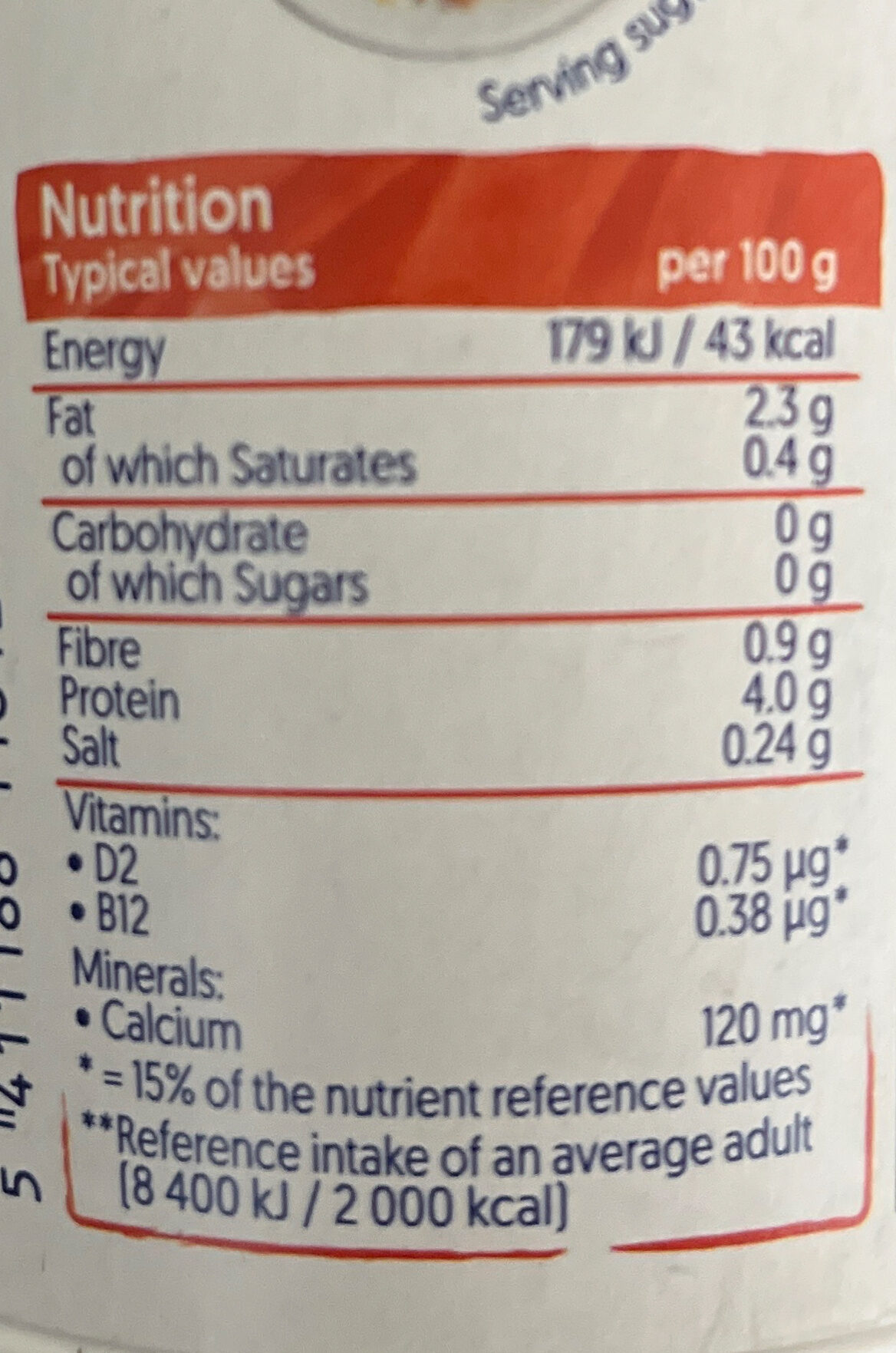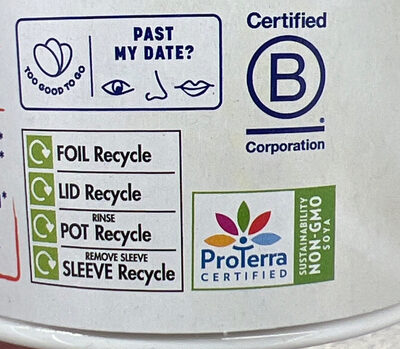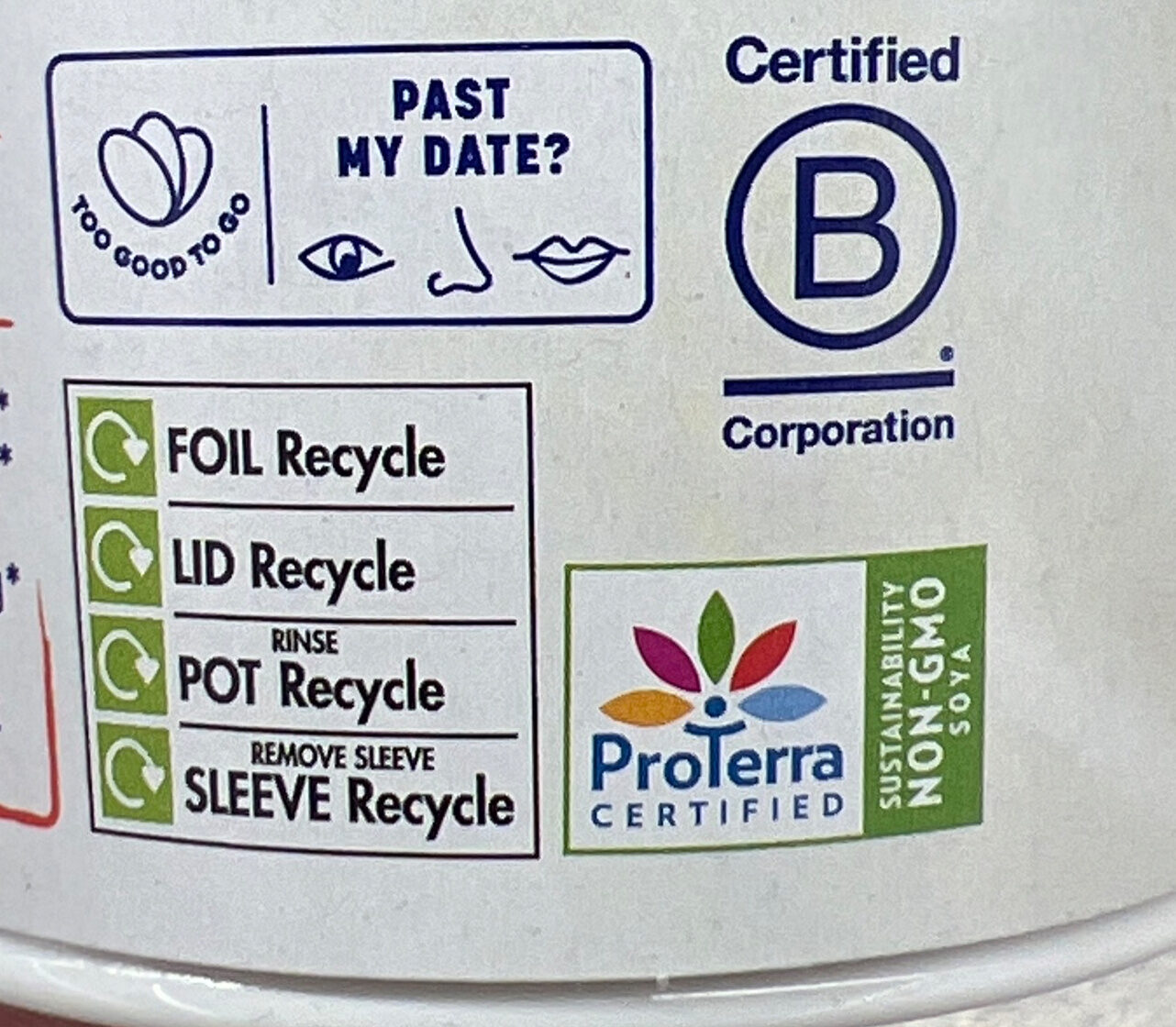no sugars plain - Alpro - 500g
This product page is not complete. You can help to complete it by editing it and adding more data from the photos we have, or by taking more photos using the app for Android or iPhone/iPad. Thank you!
×
Barcode: 5411188118121 (EAN / EAN-13)
Quantity: 500g
Packaging:
Plastic, Metal, Cardboard, PET 1 - Polyethylene terephthalate, PP 5 - Polypropylene, Recyclable Metals, Aluminium, Paperboard, Card-sleeve, Container, Foil-lid, Green dot, Pet-lid, Pp-pot, fr:Opercule en métal, fr:Pot plastique
Brands: Alpro
Categories: Plant-based foods and beverages, Fermented foods, Dairy substitutes, Desserts, Non-dairy desserts, Non-dairy fermented foods, Non-dairy yogurts, Soy milk yogurts
Labels, certifications, awards:
Low or no sugar, No gluten, Vegetarian, No GMOs, Vegan, Ohne Gentechnik, Certified B Corporation, European Vegetarian Union, European Vegetarian Union Vegan, Green Dot, No lactose, No milk, No sugar, Nutriscore, Nutriscore Grade A, The Vegan Society, Triman





Manufacturing or processing places: EU, Belgium
Link to the product page on the official site of the producer: https://www.alpro.com/uk/products/plant-...
Stores: REWE, ICA Supermarket, Delhaize, Franprix, Kaufland, Tesco Extra, carrefour.fr, K-Supermarket
Countries where sold: Austria, Belgium, Finland, France, Germany, Ireland, Spain, Switzerland, United Kingdom
Matching with your preferences
Report a problem
Data sources
Product added on by anticultist
Last edit of product page on by thaialagata.
Product page also edited by aine, axvonder, charlesnepote, countrybot, date-limite-app, djenny, docsniper, driveoff, ecoscore-impact-estimator, eddyag, envol-vert, fapfi, flor0, foodless, foodrepo, foodvisor, inf, itsjustruby, jeroen1730, jokurt, jrg63, jumati, kaypee, kiliweb, lisaeckhardt, malisselina, moon-rabbit, mvainola, olofolleola4, openfoodfacts-contributors, packbot, planteuser, prepperapp, professordoc, quechoisir, quentinbrd, roboto-app, rochus, rotebete, sasa, scanbot, sebleouf, smoothie-app, sne1991, srflp, stephane, swipe-studio, username, vaporous, walterppk, yuka.R1BvQ1BZOFR1dVVud1BjMzNCYlQybzlvMkxpUVUwS3ROOHBOSUE9PQ, yuka.WnFNTkQ0OG9pS1Fyb2RnazdpM1UxZnQvMVp5Z1YzT3pDK1lCSWc9PQ, yuka.sY2b0xO6T85zoF3NwEKvll1sXoSF82z9JxLQpmqxmPKgfqTLU41Q0tWmKas, yuka.sY2b0xO6T85zoF3NwEKvllRjbcuEsy39MAPlgWGm9tOKIJvIOeluwq_XFas, yuka.sY2b0xO6T85zoF3NwEKvlnVoYdvYqzbKJj3vmGGM_fOkcYS1b99t7qP5Lqg, yuka.sY2b0xO6T85zoF3NwEKvlnxnf9Hgum7jZhHUxxaF5dLTPpnvMdFf-pDcLKg.

